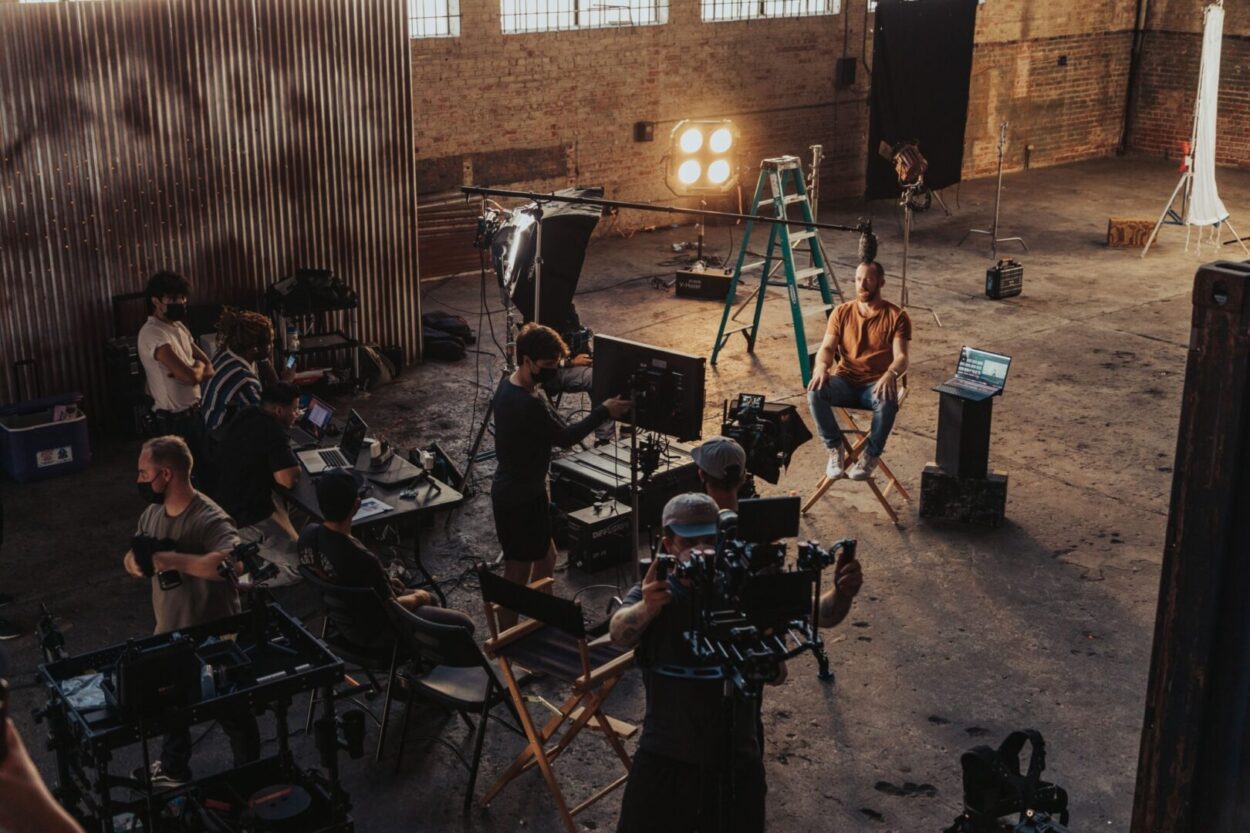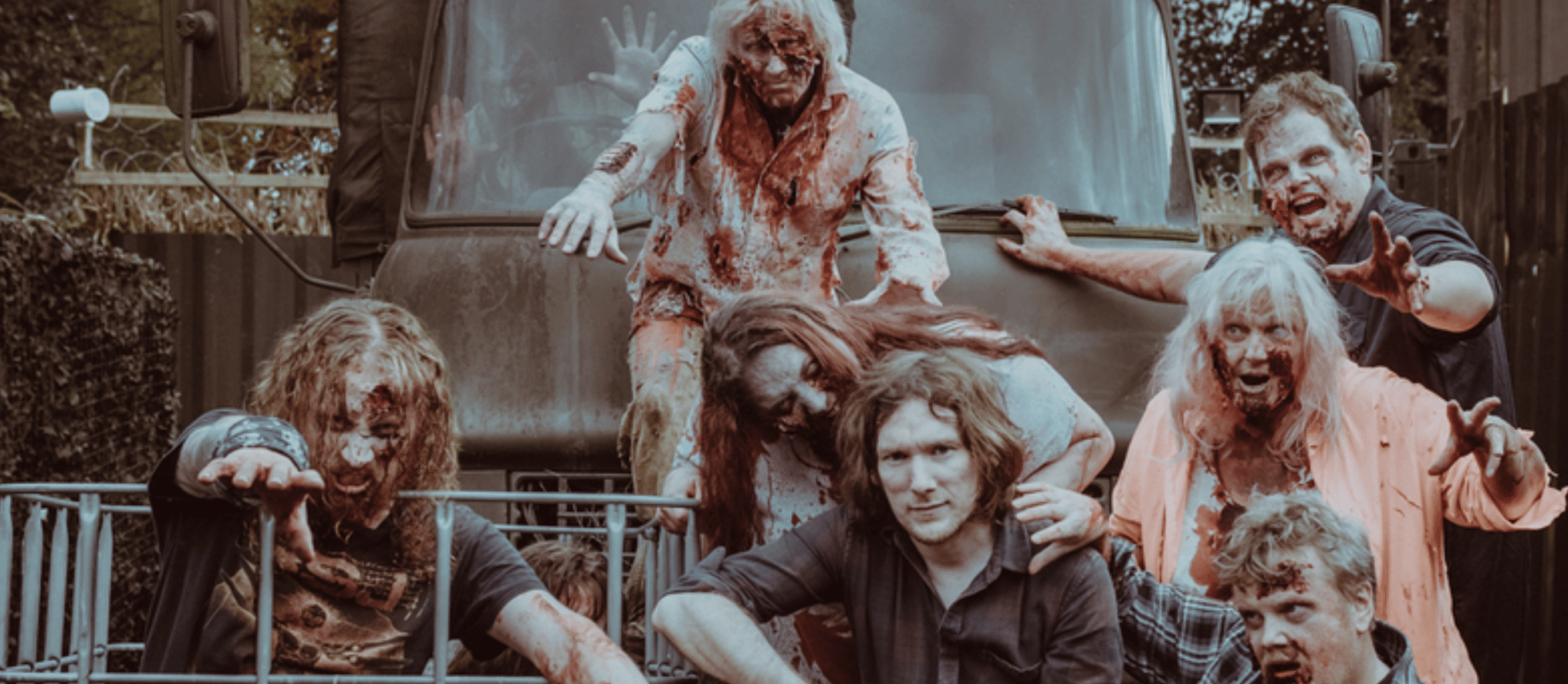Jasmine Birtles
Your money-making expert. Financial journalist, TV and radio personality.


When MoneyMagpie founder Jasmine Birtles suggested recently that there was work to be made as an Extra in film and TV, she was met by lots of very unbelieving comments. Some outright said, “yeah because that’s a thing” and others asked honestly how this could be done. We have covered this previously on MoneyMagpie here. But we asked filmmaker Miles Watts about the experience.

Miles on set
“You may have seen the show Extras and thought, do all these people in the backgrounds of TV and films get paid to be there? The answer is yes they do. Then you might wonder, is the money good enough for me to consider trying this?
Now, personally I’ve done a bit of extra work, and this was partly because I had nothing better to do one week a few years back, and also because I was interested – filmmaker that I am – to see what it was like from the other side of the camera: being turned into a period film extra. The fact that the TV show and film I signed up to extra in were about, respectively, a serial killer (I’d just made a movie about one) and the other one starred Alan Rickman, I thought why not? For me, being on a couple of film sets would be an invaluable experience.”
Put simply, extras or SAs (Supporting Artists) are paid to fill out the backgrounds in TV shows or films that need crowd scenes, passers-by, pub regulars and so forth. Generally an SA won’t have a featured or speaking role: their job is to blend in and seem like they’re part of the scene unfolding in the foreground. That said, you can (and I have) gained the odd extra role with a speaking line, for which you get paid more – and more on that in a bit.
Bear in mind I did both the extras jobs for a bit of fun, not because I particularly needed the money or want to be a professional SA or anything. I must say though, the respect I garnered for extras after being one skyrocketed immeasurably.
For the first job, the TV one about the serial killer, I was required for a funeral scene in a graveyard in a pleasant Yorkshire field, so I was driven by my long-suffering partner (I don’t drive… yet) to set very early in the morning, where I was stuffed into the period suit I’d been fitted for a week earlier (you get paid for that, too). That was a pleasant enough day, a bit boring, with lots of standing around while the crew set up shots (something I’m more than familiar with, so I watched and waited patiently).
The scene involved me ushering mourners out of the church, nodding at the actor playing the vicar, who’d worked with Johnny Depp and on just about every TV show and film I’d ever seen, and shutting the door. I did that about ten times. The shot didn’t make it into the movie, presumably not because I was so awful in it but probably because the scene was too long. The camera crew will get a lot of what they call ‘coverage’, most of which they don’t need but which covers them in the edit. Come to think of it, that’s probably one of the reasons it’s called coverage.
My second extras job, with the same agency, was not as pleasant because it was in a dank, dark, cold, crumbling building, and I was a semi-featured extra (I didn’t have a speaking role but I had to tip my hat at the only other extra in the scene.) The main actor in the scene was a now-very famous British actor from TV and film (including a Spielberg movie) and she was nothing but friendly and courteous as we blocked out the scene and she ran her lines again and again.
After a few goes through the blocking – which is where the actors and extras work out who’s standing and walking where – it was relayed to me that I wasn’t moving fast enough through the scene, then too fast, then not tipping my hat correctly, and then they gave up the idea of me doing any of the above, and made me sit in a quiet room in the dark next to a heat lamp, presumably to think about what I’d done. Or hadn’t done.
It then took about five hours for them to escort me from the set (you can’t just leave when you want), remove my itchy fake beard and set me free into the wild, where I met with my partner to enjoy a nice cold beer. Oh and Alan Rickman didn’t show up, and then later I found out the reason was that sadly, he’d succumbed to cancer. But, it was an experience, I will say that.
I did of course get paid for all of the above: for my costume fittings and for my extra time on set, and it was paid when they said it would be. But I wouldn’t say it was an easy couple of days: early starts, random locations, uncomfortable clothes… however, we did get some nice food and drink during the breaks.
So, if you fancy having a go at being an extra (and I’ve had many offers since), here’s what to look out for.
First off, you need to sign up with an agency, who will require photos of you and a biography, with front, side and back pictures of you with no makeup, plain enough clothes and a clear expression: sort of like taking a passport photo. This way, the talent agency will be able to see what you look like. Be honest with your photos, because you may just have the exact look they’re going for depending on the project: being the size and figure you are with the hairstyle you have (although sometimes you may be asked if you’re amenable to changing your appearance) could be exactly what they need, so don’t go changing.
Do some research into the best UK talent agencies. Some of these include:
Google around and make sure the agency you apply to is legit, and adheres to the laws of talent work in the UK. As an agency worker, you have the same rights as other employees and workers to: be paid at least the National Minimum Wage or National Living Wage, to not have any deductions from your pay that are not legal. To be paid on time and by the agreed method.
Once you’re signed up to the agency, you’ll have to wait for opportunities to come your way, which is the shaky part of being an SA. I stayed signed on with my talent agency, mostly to keep track of the productions happening in my area, and in the past six months for example, I’ve had several emails a week asking me to try out for several big productions – we’re talking BIG Hollywood films with huge stars, and new TV shows for Netflix and the BBC.
The money is pretty good for a side job, as I say, but not as a main career, as you’re at the mercy of whatever productions are running. Covid was disastrous for the film and TV industry but it’s slowly coming back: these days you’ll HAVE to be Covid-compliant on set, so that means masks and hand san as well as social distancing: it’s the law!
You could make as much as £100 a day being an extra, but as mentioned before, half of that could potentially be spent on your travel costs. Plus, the schedules are often mercilessly last-minute and inflexible, so if you have a regular job or family commitments, it’s very hard to fit SA work into your monthly schedule. If you fancy it though, and you ideally have your own car, you may want to look into it.
Ideally you’ll need to drive to the locations, which are usually near-ish where you live but frequently in the middle of nowhere, and the start and finish times often leave a lot to be desired. The longest extras day I did myself started at 5am and ended at 3am, for which I was paid overtime, but it was a long, uncomfortable day where I had to wear a false beard and tight suit. You’re not allowed to have your phone on set so you can’t sit around texting, and there’ll often be long periods of time where you’re sitting on set or in a trailer with nothing to do. So for God’s sake take a small book to have handy, or strike up chats with other SAs: that’ll get you through the day. Lots of interesting people work as SAs!
You’ll be answerable to firstly the Costume and Makeup Departments, where you’ll be tousled and buttoned into your outfit, then to an Assistant Director who’ll spend a lot of time speaking into a radio and ushering you back and forth from set to make sure you don’t wander off. And you can’t make a lot of noise on set between takes either, or you’ll incur the wrath of the 1st AD, who are scary by nature as theirs is one of the hardest jobs on set.
There is the camaraderie of the other SAs however, and I made some good pals on set. I was nipped and tucked and combed and glued into my costume all day long, and my legs were killing me by the end of the day – and all for often not making it into the final cut.
And you do get paid on time, more if you worked overtime, and it’s a reliable payment system, if not a reliable career
“Yes, after a silent patch due to the pandemic, I now get almost daily offers of work at the moment, and over the past few months I’ve had multiple opportunities to become involved at various levels of SA work on some major TV and film productions: not all of them fit around my other work, but every week my inbox buzzes with notifications about productions in or near where I live.”
